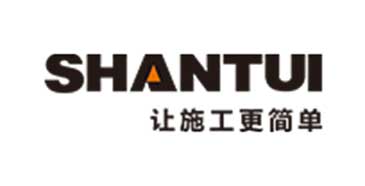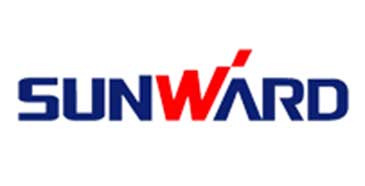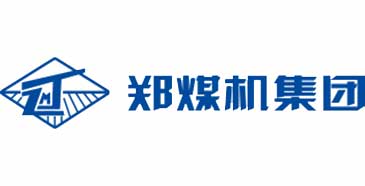Seven departments announced plans to expand the application of special engineering plastics, carbon
2025-10-10
Recently, seven departments, including the Ministry of Industry and Information Technology, jointly issued the "Work Plan for Stabilizing Growth in the Petrochemical Industry (2025-2026)" (hereinafter referred to as the "Work Plan").
The Work Plan proposes that from 2025 to 2026, the added value of the petrochemical industry will grow at an average annual rate of over 5%, economic benefits will stabilize and rebound, the industry's technological innovation capabilities will be significantly enhanced, the level of refined extension, digital empowerment, and inherent safety will continue to improve, pollution reduction and carbon reduction will achieve significant synergistic effects, and chemical industrial parks will move from standardized construction to high-quality development. Focusing on the new situation and challenges facing the petrochemical industry, the Work Plan deploys 10 key tasks in five aspects: strengthening innovation, improving efficiency, expanding demand, optimizing platforms, and promoting cooperation.
(I) Strengthen industrial technological innovation and enhance effective supply capacity.
1. Enhance High-End Supply. Focusing on the needs of key industrial chains such as integrated circuits, new energy, and medical equipment, support breakthroughs in key products in fields such as electronic chemicals, high-end polyolefins, high-performance fibers, specialty rubbers, and high-performance membrane materials. Employ collaborative innovation methods such as "challenge-based competition" to accelerate the establishment of manufacturing innovation centers, new material pilot-scale platforms, and data resource nodes in the petrochemical and chemical industries, including high-end fine chemicals. Continue to leverage the role of key platforms for new material production application verification, testing, and evaluation. Make good use of the first-batch insurance compensation mechanism for new materials to promote the R&D and industrialization of innovative products and accelerate the filling of gaps in supply and demand. Promote the upgrading of bulk products with comparative advantages, such as coatings, dyes, and pesticides, and guide upstream and downstream enterprises to establish collaborative mechanisms to improve product performance and application levels, transforming from product sales to providing integrated solutions.
2. Ensure Fertilizer Production and Supply. Optimize the management of minimum production plans for key fertilizer producers. Support key raw material suppliers such as coal, phosphate rock, natural gas, sulfur, and smelting by-product sulfuric acid to sign long-term agreements with fertilizer producers to ensure a stable supply of raw materials. Improve the integrated regulation and control system for fertilizer production, transportation, storage, sales, and trade; strengthen the coordinating role of the national agricultural input supply platform; and promote the establishment of a purchase and sales model based on risk-sharing and benefit-sharing among upstream and downstream enterprises. Promote the innovative development of efficient, specialized, environmentally friendly, and functional fertilizers such as slow/controlled-release fertilizers, water-soluble fertilizers, liquid fertilizers, and micronutrient fertilizers; and provide services such as soil testing and formula fertilization, and unified fertilizer distribution and application, tailored to local conditions.
3. Optimize the management of pilot-scale projects. Leverage the key role of pilot-scale projects in connecting the innovation chain, technology chain, and industrial chain to enhance the industry's innovative development momentum. Pilot-scale projects within pilot-scale bases can be processed for approval, filing, environmental impact assessment, and other related procedures in a bundled manner; the types and quantities of pollutants emitted by pilot-scale bases will be determined according to the principle of total quantity control, and emission indicators will be applied for and used sequentially. For new pilot-scale tests conducted using existing pilot-scale project production facilities and pollution prevention facilities, where only raw materials and products change, and after confirmation by the ecological and environmental department with approval authority, if the types, quantities, and environmental risks of pollutant emissions do not exceed those of the original environmental impact assessment, no further environmental impact assessment approval will be required. Local governments are encouraged to introduce policies that clarify the conditions and procedures for the transfer of target products from pilot-scale projects. The testing period for a single pilot-scale project should generally not exceed two years.
(II) Expand effective investment and promote transformation and upgrading.
4. Scientifically regulate the construction of major projects. Strengthen the guidance on the planning and layout of major petrochemical and modern coal chemical projects, strictly control new oil refining capacity, rationally determine the scale and release schedule of new ethylene and paraxylene capacity, and prevent the risk of overcapacity in the coal-to-methanol industry. In the petrochemical sector, strictly implement the capacity reduction and replacement requirements for newly built oil refining projects, focusing on supporting the renovation of old petrochemical plants, the industrialization demonstration of new technologies, and the "reduction of oil and increase of chemicals" projects of existing refining enterprises; in the modern coal chemical sector, focus on areas with relatively abundant coal and water resources and good environmental capacity, appropriately plan coal-to-oil and coal-to-chemicals projects, carry out industrial application demonstrations of coal chemical coupling with new energy, advanced materials, technical equipment, and industrial operating systems, as well as carbon dioxide capture, utilization, and storage engineering demonstrations. Accelerate the implementation of projects such as natural gas helium extraction and seawater potassium extraction.
5. Implement safety-oriented upgrades. Formulate and implement the "Action Plan for Vigorously Promoting the Upgrading and Renovation of Old Plants in the Petrochemical and Chemical Industry," improve the standard system supporting the scientific evaluation and benchmarking of old plants, establish a project database for upgrading and renovating old plants, support the comprehensive upgrading and renovation of old plants, and promote the accelerated full-process automation or low-risk replacement of key monitored hazardous processes. By the end of 2025, the relocation and upgrading of hazardous chemical production enterprises in densely populated urban areas will be fully completed.
6. Accelerate digital and green transformation. Implement the "Implementation Guidelines for Digital Transformation in the Petrochemical Industry," leverage the role of the industry's digital transformation promotion center, conduct maturity assessments and technological upgrades for digital transformation, and cultivate typical scenarios, benchmark factories, and benchmark enterprises for digital transformation. Launch the "Artificial Intelligence + Petrochemical Industry" initiative, accelerate the construction of high-quality industry datasets, support enterprises in strengthening the intelligent adaptation and upgrading of key equipment, deploy a number of scenario models targeting the needs of typical unit operations in the industry such as separation, distillation, and purification, train and build a large-scale model for the petrochemical industry, and select and release a number of exemplary cases with strong driving force. Support enterprises in increasing their efforts in energy conservation, water conservation, and pollution and carbon reduction, carry out upgrades of key energy-consuming and water-consuming equipment, and transform the source reduction, harmless treatment, and comprehensive utilization of solid waste such as phosphogypsum, promoting the transformation of products such as coatings, inks, adhesives, and cleaning agents towards low (or no) VOCs content and low photochemical reactivity. Plan and implement a number of major projects for coordinated pollution reduction and carbon reduction in the petrochemical and chemical industries, and create a number of benchmark enterprises for coordinated pollution reduction and carbon reduction efficiency. Promote the construction of a number of digital energy and carbon management centers in enterprises and industrial parks.
7. Strengthen standard guidance. Conduct research on evaluation standards for coordinated pollution reduction and carbon reduction efficiency in the petrochemical and chemical industries, issue and implement technical guidelines for coordinated pollution reduction and carbon reduction efficiency, and establish an evaluation index system for coordinated pollution reduction and carbon reduction efficiency. Conduct preliminary research on standards such as green electricity-green hydrogen-petrochemical/coal chemical coupling, promote the formulation of carbon footprint accounting rules and standards for key products, and release and implement standards for the maturity assessment of digital transformation in the petrochemical and chemical industries, as well as standards for data management and data security. Accelerate the development of product standards for high-end fine chemicals, quality traceability standards for key products such as fertilizers, and quality grading standards for basic products such as synthetic rubber. Formulate and revise mandatory national standards for pollutant emissions from petroleum refining and petrochemical industries, and limits on volatile organic compounds in coatings.
(III) Expand market demand and stimulate market potential.
8. Promote Supply and Demand Improvement. Organize supply and demand matching activities for petrochemical products, and promote the establishment of long-term and stable cooperative relationships between synthetic resin, coating, and tire manufacturers and downstream users in construction, automobiles, and shipbuilding industries to improve the supply and demand adaptability in traditional sectors. Focusing on emerging industries such as new energy, low-altitude economy, and humanoid robots, actively expand the application of new energy battery materials, carbon fiber and its composite materials, and special engineering plastics. Collect and promote typical cases of non-grain bio-based materials, promote the application of green ammonia and green alcohol in the marine fuel market, and accelerate the improvement of green product certification. Vigorously promote the integrated development of domestic and foreign trade, strengthen the connection between standards and certification, increase the underwriting support of integrated domestic and foreign trade credit insurance, and help foreign trade products expand into the domestic market.
(IV) Strengthen development platforms and cultivate high-quality growth engines.
9. Develop high-quality chemical industrial parks and industrial clusters. Continue to improve the establishment, certification, expansion, review, and rectification of problems in chemical industrial parks. Implement the competitiveness evaluation guidelines and intelligent evaluation guidelines for chemical industrial parks, comprehensively conduct graded evaluations of chemical industrial parks, and accelerate benchmarking, upgrading, and progress. Chemical industrial parks undergoing expansion should, in principle, reach a lower safety risk level (Level D) and a competitiveness level of Level II or above. Promote chemical industrial parks to focus on leading industries, selectively introduce projects that strengthen and complement the industrial chain, enhance the matching and connection of upstream and downstream products, and strengthen innovation collaboration and industrial linkage with economic development zones, high-tech zones, and other industrial parks to drive regional economic growth. Cultivate and expand advanced manufacturing clusters and characteristic industrial clusters of small and medium-sized enterprises and leading enterprises in the fields of petrochemicals, coal chemicals, phosphorus chemicals, biochemicals, and fine chemicals.
(V) Deepen opening-up and cooperation and improve the level of international development.
10. Expand International Cooperation Space. Actively respond to changes in the international trade environment, continue to implement policies and measures to stabilize foreign trade, and guide and assist enterprises in dealing with unreasonable foreign trade restrictions. Make good use of free trade agreements such as the Regional Comprehensive Economic Partnership (RCEP), deeply participate in the high-quality Belt and Road Initiative, steadily promote joint ventures and cooperation in the development and utilization of overseas oil and gas, potassium, and other resources, actively explore emerging markets, and expand export channels for petrochemical products. Strengthen service guarantees for foreign investment projects, encourage foreign-invested enterprises to establish R&D centers and joint ventures in China, and strengthen exchanges and cooperation in fields such as fine chemicals, green and low-carbon technologies, and artificial intelligence. Support industry associations in strengthening research on international trade rules and the trade situation, deepen communication and exchanges with relevant countries and industry organizations, and help chemical enterprises improve their overseas operational compliance and sustainable development capabilities. Actively participate in international convention negotiations, deeply participate in the formulation of international standards and rules, encourage the international development of third-party certification bodies, and improve the standard system and product certification system that are in line with international standards.
Relevant News
-
Innovation Empowerment | SUPER ARTERY LOW BEND SERIES Super Hercules Low Bend Series Hose
-
Kerosene cleaning objects and methods
-
Letone Hydraulics sincerely invites you to participate in the "19th Beijing Petroleum and Petrochem
-
Yu Wei, Deputy Mayor of Luohe City, came to investigate
-
Letone Hydraulics sincerely invites you to participate in the 19th China International Petroleum and
-
Letone Hydraulics sincerely invites you to participate in the "Germany Hannover Messe" and "BMW E
-
Letone Hydraulics (Booth No.10152) will meet you at the 2024 Abu Dhabi International Petroleum Expo
-
Up to $1.8 billion! High US tariffs could severely damage the construction machinery industry!

















